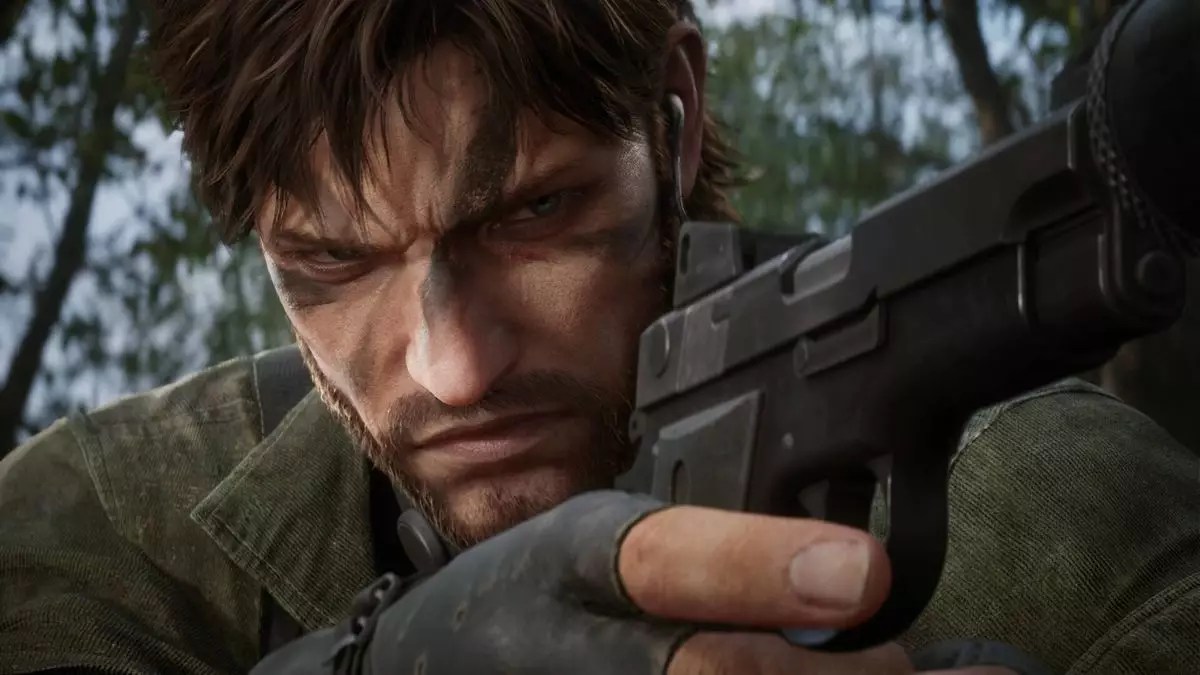The Metal Gear franchise, an iconic series in the realm of video games, has been a significant pillar of the industry for decades. Its protagonist, Solid Snake, became a symbol of stealth and tactical gameplay, providing captivating narratives that combined intricate plots with profound themes. However, the series is now facing a modern challenge: a new generation of gamers who may not be acquainted with this storied past. In an interview with Noriaki Okamura, a producer for the upcoming remake, Metal Gear Solid Delta, he candidly reflects on this concern, acknowledging the waning familiarity of younger audiences with the franchise. This reality raises an important question: how does one introduce a classic to a demographic with different gaming backgrounds and preferences?
Okamura highlights a pivotal ambition behind the remake project—to transmit the essence of Metal Gear to a younger audience while honoring its roots. The original Metal Gear Solid 3: Snake Eater was released two decades ago. Since then, the series has not seen a new mainline installment since 2015. This absence might contribute to the detachment of younger players from the lore and characters that older gamers hold dear. The impact of nostalgia is significant, as it fosters a connection between players and the experiences of their youth. Yet, Okamura asserts that the mission goes beyond mere nostalgia; it is about safeguarding the franchise’s legacy for the future. This intention to bridge the generational gap is commendable and reflects a deeper understanding of the video game culture.
One of the most intriguing decisions made by Konami is the choice to forego traditional numerical titles in favor of the Greek letter delta. This strategy reflects an intent to innovate while still respecting the franchise’s history. It symbolizes change and evolution, aligning with the overarching theme of adaptability that has been a hallmark of the Metal Gear series. Although starting the remake journey with Snake Eater—a prequel in terms of the narrative timeline—may seem unconventional, it is a bold move designed to lure both veterans and newcomers into the fold. The decision to streamline the introduction of the series’ vast lore will help elucidate the story for those unfamiliar with its complex backstory.
As gaming technology and player demographics evolve, engaging newer audiences becomes paramount. Metal Gear Solid Delta appears not just as a nostalgic revisit for seasoned fans but as an open invitation for younger gamers to explore and experience the franchise. By identifying the challenges posed by an era that has seen significant shifts in gaming preferences—a major influx of online multiplayer games, rapid innovation in graphics and storytelling techniques, and diverse gaming genres—Konami aims to facilitate meaningful connections with a new generation.
In essence, Metal Gear Solid Delta represents a crucial attempt to preserve a legacy that could easily fade into obscurity. By carefully balancing nostalgia with innovation, the team behind the remake is poised to recapture the hearts of those who loved Solid Snake while simultaneously welcoming a fresh batch of players into his world. This dual approach isn’t merely ambitious; it’s necessary for the survival of beloved franchises in an ever-evolving gaming landscape.


Leave a Reply